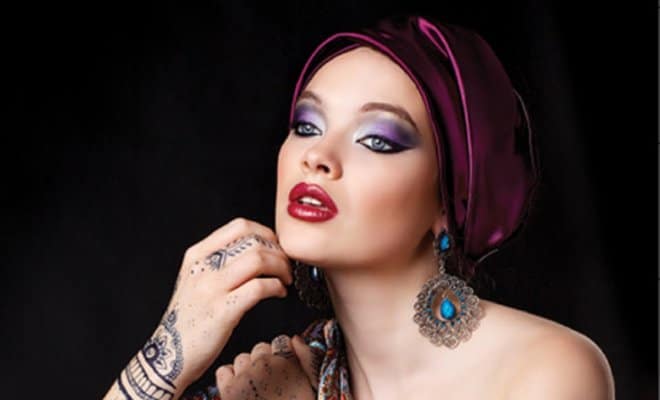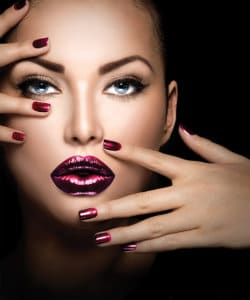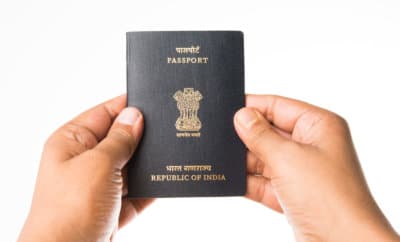Business
Suhoor Makeup And Other Racial Ignominies

Photo Credit: Bigstock
It is startling that global companies catering to women across cultures, colors, countries and races could so glaringly err in judgements about minority representation.
As Muslims around the world were busy stocking up their refrigerators with easy-to-eat meals for the pre-dawn suhoor meal during Ramadan this year, something puzzling caught their eye. Mac, the make-up giant, in a bid to woo Muslim women, released a tutorial on how to put on suhoor makeup complete with smoky, gold-rimmed eyes.
Muslim women could not wrap their head around how make-up would be relevant for a practice that involves waking up in the middle of the night, stuffing the mouth with cereals or other quick bites in pajamas and going back to deep sleep. Clearly, the make-up brand fell prey to its overzealousness to capture an emerging market without undertaking even basic homework on the culture.
The social media snarkling that followed opened up a debate on how brands crassly commercialize religious occasions. But more importantly, the hilarious memes on Mac highlighted how poorly-informed many Western brands continue to be about other religions, cultures and races despite talk of diversity and inclusiveness.This is not the first time that the beauty business in particular has demonstrated a singular ignorance toward non-Western races and cultures. Late last year, another major brand, Dove, depicted an advertisement on its Facebook page, which showed a black woman turning white with the use of its product. While the company later apologized after being accused of racism, both marketers and critics couldn’t grasp how the company could be so tone deaf to begin with.
The online debate pondered whether the advertisement meant to suggest that white skin is purer or more beautiful or desirable than dark skin. Dove issued a statement that the ad “missed the mark,” but online the criticism was harsher. American make-up artist Naomi Blake and an Instagram star, who goes by the name Nathyemua, wrote: “What does America tell black people? That we are judged by the color of our skin and that includes what is considered beautiful in this country.”

It is startling that global companies catering to women across cultures, colors, countries and races could so glaringly err in judgements about minority representation. Trans model Monroe Bergdorf complained: “Diversity is viewed as a buzzword or a trend. An opportunity to sell products to women of color. Dove — do better.”
As brands rush to cash in on emerging markets, one would expect that the least they could do is to understand the culture. While Mac was trolled for its ill-timed tutorial with memes and jokes on the internet, it also fueled outrage. Rana Shah, a college student, says: “It was as if the brand was doling out a favor to us by ‘catering’ to our needs, while the creative brains there did not as much as have a basic understanding of a culture that is significantly big. It is the white supremacist notion of viewing the world through their rose or perhaps white tinted glasses.”
Recently reality TV star Kim Kardashian’s new make-up line came under fire. The TV star proudly advertised her new KKW range of concealers in 16 shades. The ad featured a photo of a black model wearing the shades on her arm. Oddly, none of the 16 shades matched her skin tone. This led to the viewers to question if Kardashian forgot to include shades for black women in her make-up line though she is herself mother to black kids. Also, the fact that a black model was chosen to showcase the shades, when none was created keeping her tone in consideration, further accentuated the fact that the dark model was chosen only for her token diversity.
But the pushback may have a silver lining. This season when Rihanna released her make up brand Fenty Beauty, the line was immediately applauded for its inclusive thoughtfulness as it came in 40 shades, catering across a spectrum of skin tones.
As global brands stampede for market share of the rising colored consumer, they will need deeper appreciation of diverse communities and traditions if they are to be avoid the kind of bloopers that have tripped the likes of Mac and Dove.



